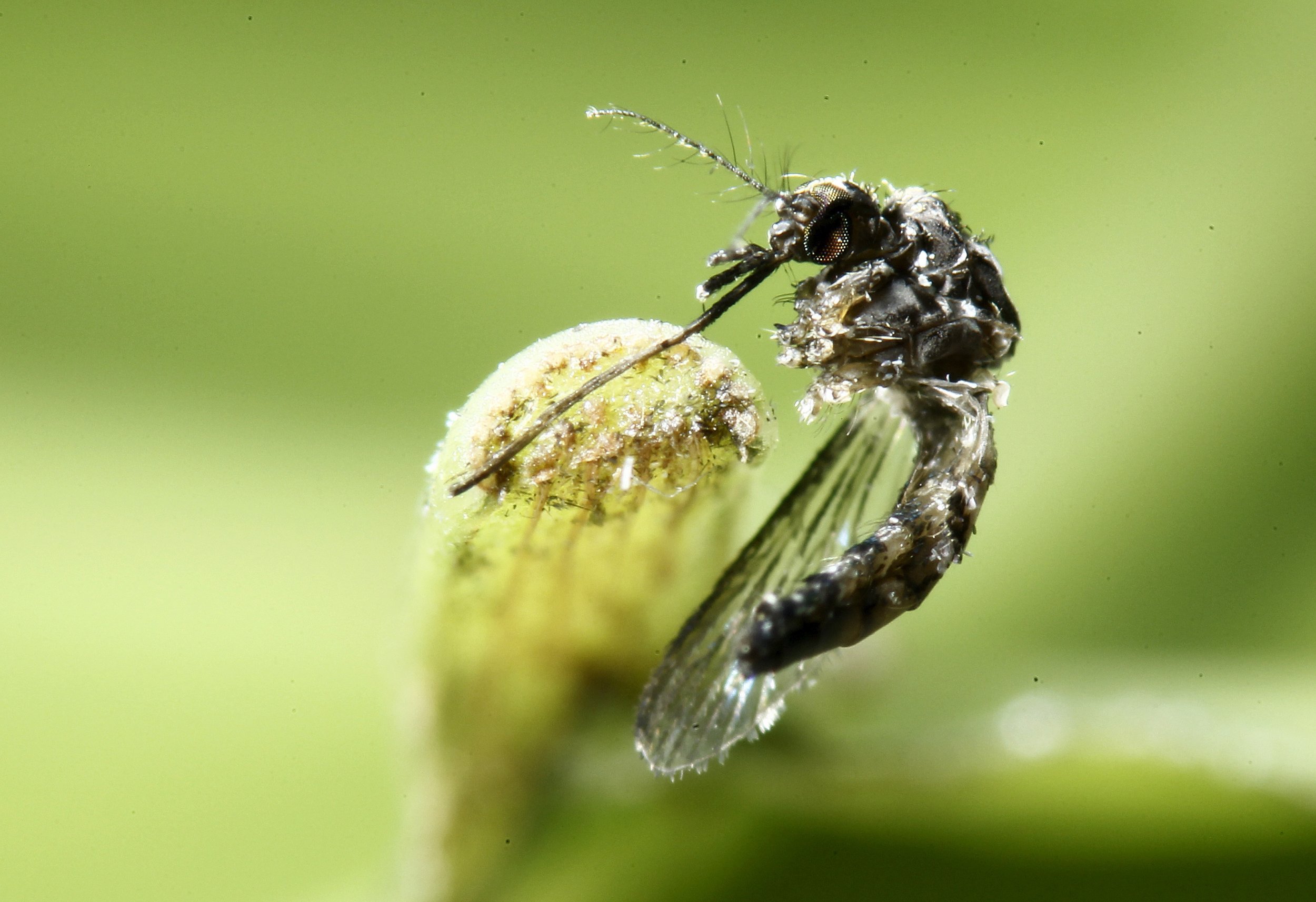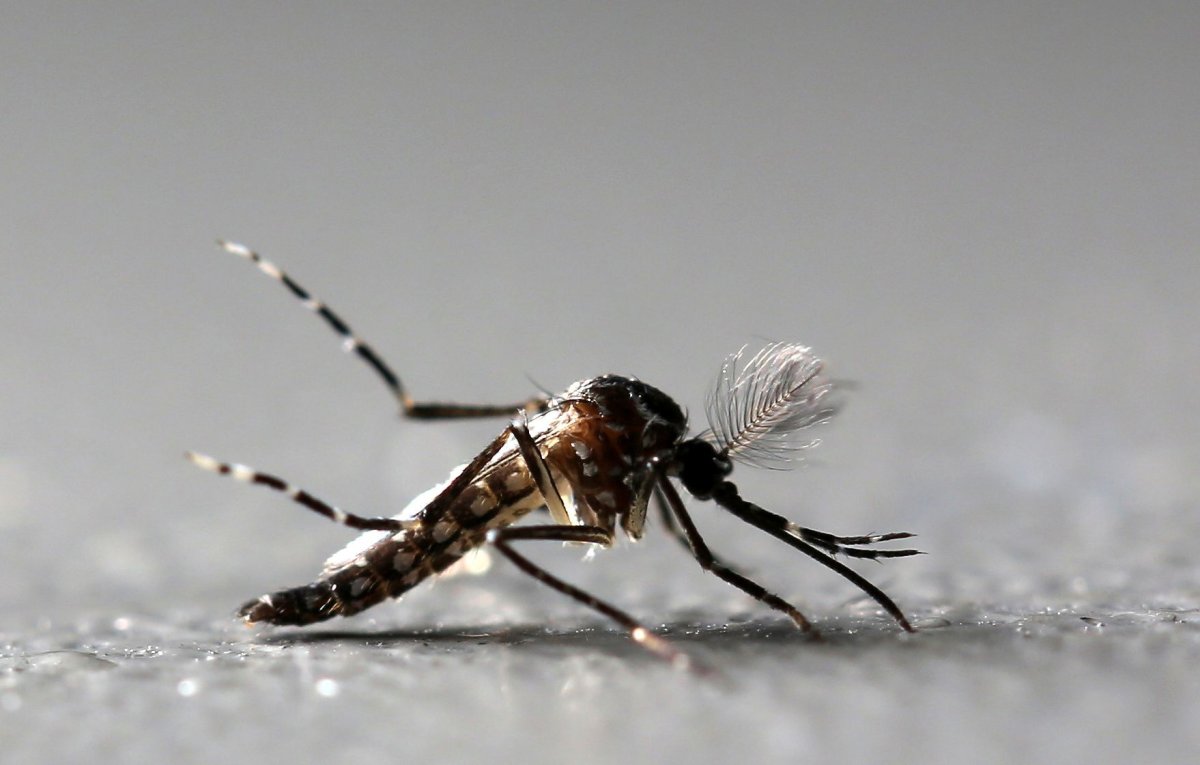
Mosquitoes could be on the frontlines in the fight against—believe it or not—other mosquitoes.
The Environmental Protection Agency (EPA) gave MosquitoMate the go-ahead to use male mosquitoes weaponized with a bacteria called Wolbachia pipientis as a method to kill the Asian tiger mosquito—responsible for spreading diseases like Zika, dengue, yellow fever and chikungunya.
The agency gave approval to the biotechnology startup based out of Lexington, Kentucky, last Friday to release the mosquitoes into the environment, reported Nature. The male mosquitoes—which don't bite humans—are infected with the bacteria, and as a result, when they mate with wild female mosquitoes the fertilized eggs do not hatch.
"It's a non-chemical way of dealing with mosquitoes, so from that perspective, you'd think it would have a lot of appeal," David O'Brochta, an entomologist at the University of Maryland, told Nature. "I'm glad to see it pushed forward, as I think it could be potentially really important."
The approval lasts five years and is approved for Washington, D.C., California, Connecticut, Delaware, Illinois, Indiana, Kentucky, Massachusetts, Maine, Maryland, Missouri, New Hampshire, New Jersey, Nevada, New York, Ohio, Pennsylvania, Rhode Island, Tennessee, Vermont and West Virginia, according to the EPA.
As more of these bacteria-infected males are released into the wild, the company told Nature, the wild population of Asian tiger mosquitoes, Aedes albopictus, will decrease. Other insects and species of mosquitoes are not harmed, according to Stephen Dobson, founder of the company.
Dobson told Quartz that the company could begin selling the bacteria-infected mosquitoes—named ZAP Males for the particular strain of bacteria they have—next summer for individual homeowners and municipalities. The EPA in their announcement on Tuesday said the company will have to register in each individual state to be used there.

MosquitoMate has already tested a different species of mosquito called Aedes aegypti infected with the same bacteria in the Florida Keys and Fresno, California, according to Nature. Other products, particularly genetically modified mosquitoes from the company Oxitec, have sparked controversy and pushback from a community in the Florida Keys. MosquitoMate, however, received just over a dozen mostly positive comments during the public-comment period for the Florida trials.
Florida is not one of the states with approval for the latest-approved product since its field trials were not conducted there. The states that were chosen were more similar in temperature and precipitation to the areas where the ZAP Males were tested: Kentucky, New York and California.
This type of mosquito technology, if successful on widespread levels, would be another step toward solving one of the largest global public health issues: mosquito-borne diseases.

MosquitoMate's newest product approved by the EPA targets mosquitos that can spread Zika, yellow fever, chikungunya and dengue. Although less on the radar for many Americans, around the world there are an estimated 96 million cases of dengue, according to the World Health Organization.
The Zika virus outbreak first began in Brazil, then spread across the Americas and into the U.S., with locally transmitted infections (indicating cases that were transmitted from mosquitoes in the country, rather than brought by returning travelers) in Texas and Florida. The virus—though rarely severe—can cause birth defects, ranging from microcephaly, where infants' heads are abnormally small, to major eyesight and hearing problems. Zika has since subsided as far as public health crises go, but the first local case of 2017 was reported in Florida as recently as last month, reported the Miami Herald.
Uncommon Knowledge
Newsweek is committed to challenging conventional wisdom and finding connections in the search for common ground.
Newsweek is committed to challenging conventional wisdom and finding connections in the search for common ground.
About the writer
Sydney Pereira is a science writer, focusing on the environment and climate. You can reach her at s.pereira@newsweekgroup.com.
To read how Newsweek uses AI as a newsroom tool, Click here.








